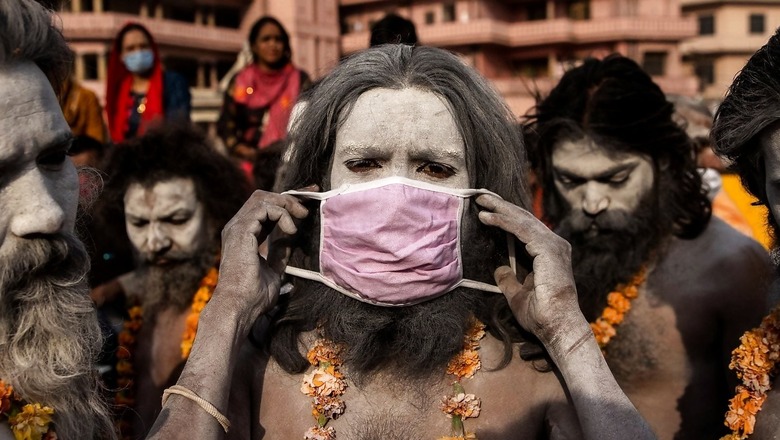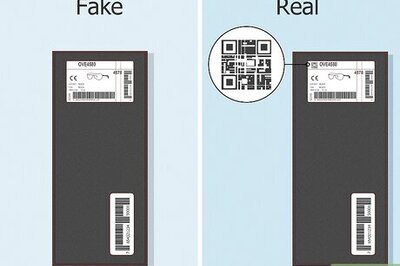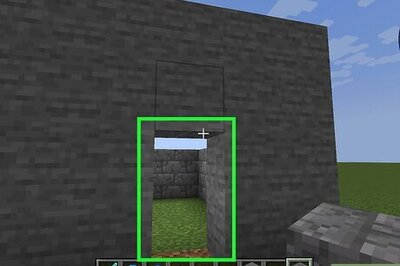
views
What started as a mere SMS inquiry by a Punjab-based LIC agent, blew the lid off India’s biggest covid-19 test scam that potentially became a trigger for the deadly second wave in India. The Enforcement Directorate (ED) on Friday conducted multiple raids in connection with a money laundering probe into the recently-held Kumbh mela in Uttarakhand’s Haridwar.
News18 explains how the fraud was unveiled and what has the probe achieved so far:
How did this come to light?
On April 22, 2021 Vipan Mittal — an LIC agent in Punjab’s Faridkot — was surprised to receive an SMS on his cellphone with a link to his Covid test report.
However, he had not given any swabs for testing.
Suspecting that his personal data was stolen and misused, Mittal went to local district authorities, but was not heard. As a last resort, he filed an email complaint with the Indian Council of Medical Research (ICMR).
However, when several days passed and little action happened, he eventually filed an RTI plea to find out what the case really was. Thereafter, the matter picked up pace and a probe found that the lab that supposedly carried out Mittal’s Covid test was located at Haridwar.
Further investigation into the case revealed that Mittal wasn’t alone. About a lakh of bogus reports were produced under a massive scam. As per official records, close to four lakh Covid tests were conducted by 22 laboratories hired by the administration.
But what is the connection with Kumbh?
This had first piqued people’s interest after tests at this year’s Kumbh returned suspiciously low positivity numbers. The “tests” were done during the Kumbh following a court order to carry out at least 50,000 tests daily in Haridwar.
The probe report, running into as many as 1,600 pages, puts a Haryana agency at the centre of it all. Names and addresses against which test reports were issued were found to be fake. Many of the supposedly tested Kumbh visitors ‘shared’ the same phone number. The probe also showed multiple people registered against one single-use antigen test kit. The list of sample collectors was found to have names of people who never even went to the Kumbh.
Authorities had to dial one lakh phone numbers?
According to a report by India Today, teams investigating the scam called up all mobile phone numbers that were registered against the nearly 1 lakh RT-PCR tests that were alleged to be fake. By calling each number, the investigating teams ascertained if the person using the number even attended the Kumbh Mela, besides collecting other evidences related to this scam.
The Uttarakhand government constituted an eight-member team that dialed these numbers one by one and verified them.
Do we have names of private labs that have been booked?
During the Kumbh Mela, the Uttarakhand government had authorised 11 private companies to carry out RT-PCR tests of people attending the fair. Among them, Max Corporate Services, which in turn hired Nalwa Labs and Dr Lalchandani Labs to conduct RT-PCR tests had cases registered against them on June 17.
They have been accused of resorting to fraud in the name of carrying out RT-PCR tests, preparing Covid-19 test reports of even those who did not attend the Kumbh Mela and submitting the fake reports to the administration, conducting hundreds of tests at one location itself and registering several people using the same mobile phone number.
What about arrests?
On July 22, the first arrest was made by a special investigation team. Circle Officer of Haridwar, Abhay Pratap Singh told ANI that the accused Ashish Nalwa, a resident of Haryana, used to provide Covid testing lab with manpower and other equipment and was responsible for feeding data of COVID tests.
Investigations revealed that the private agency accused of irregularities in COVID-19 tests during the recently concluded Kumbh Mela, continued to upload data on the Indian Council of Medical Research (ICMR), portal even after its agreement with the Mela administration concluded.
What is the latest ED raid?
Searches were conducted at the offices of Novus Path Labs, DNA Labs, Max Corporate Services, Dr Lal Chandani Labs Pvt Ltd and Nalwa Laboratories Pvt Ltd and also at the residential premises of their directors in Dehradun, Haridwar, Delhi, Noida and Hisar, the agency said in a statement.
The ED said it has seized “incriminating documents, bogus bills, laptops, mobile phones and property documents and Rs 30.9 lakh cash” during the raids that were ongoing. The agency recently registered a criminal case under provisions of the Prevention of Money Laundering Act (PMLA) against the accused companies and their directors after studying Uttarakhand Police FIRs against them. This was followed by the raids.
Due to false negative testing by these labs, positivity rate of Haridwar at that time was shown at 0.18 per cent against the actual 5.3 per cent, the ED said.
Did this event contribute to the spread of covid-19 in India?
A BBC report termed the Kumbh Mela pilgrims as “super-spreaders”, citing reports of returning pilgrims testing positive in Rajasthan, Orissa, Gujarat and Madhya Pradesh.
In the weeks after the Kumbh Mela took place in Haridwar, Uttarakhand, between March 31 and April 24, reports grew that the event, which saw roughly 3.5 million devotees congregate in the small riverside town, became a hotbed for the infection.
The Uttarakhand High Court in May pulled up the state government for continuing to allow religious events despite a surge in coronavirus cases and doubted its preparedness to deal with the pandemic, asking it to wake up from slumber.
Read all the Latest News, Breaking News and Coronavirus News here.
















Comments
0 comment